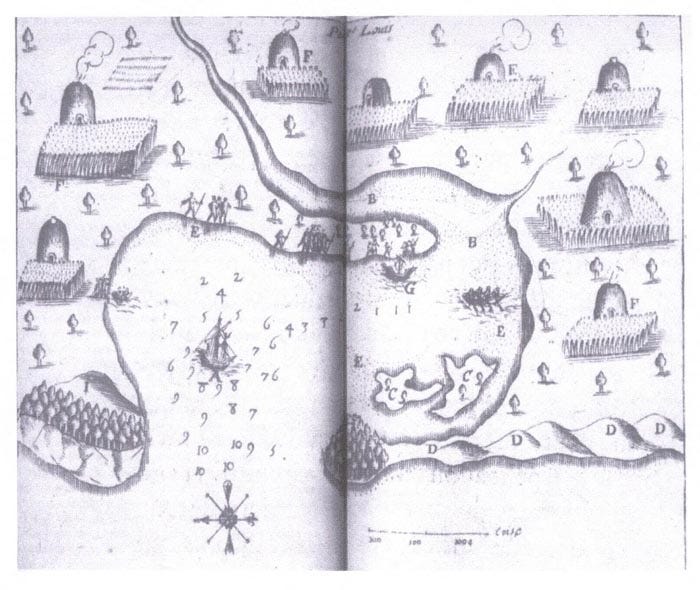
I didn’t talk about George at Thanksgiving dinner at all. However, I read something on the internet tonight and needed to respond.
Chris Freiman (a business and econ professor, libertarian, effective altruist) posted a passage from a book with his takeway:
A Thanksgiving reminder that socialism doesn’t work:
The fall of 1623 marked the end of Plymouth’s debilitating food shortages. For the last two plating seasons, the Pilgrims had grown crops communally—the approach first used at Jamestown and other English settlements. But as the disastrous harvest of the previous fall had shown, something drastic needed to be done to increase the annual yield.
In April, Bradford had decided that each household should be assigned its own plot to cultivate, with the understanding tah each family kept whatever it grew. The change in attitude was stunning. Families were now willing to work much harder than they had ever worked before. In previous years, the men had tended the fields while the women tended the children at home. “The women now went willingly into the field,” Bradford wrote, “and took their little ones with them to set corn.” The Pilgrims had stumbled on the power of capitalism. Although the fortunes of the colony still teetered precariously in the years ahead, the inhabitants never again starved.
— Mayflower: A Story of Courage, Community, and War by Nathaniel Philbrick 2007
Raise your hand if you know what I’m about to point out. I’m about to point out that while Bradford did change Plymouth’s policy so that each laborer received the full fruits of their own labor, he furthmore distributed the land fairly among members of the colony.
If you want to call Bradford’s policy “capitalism”, then you need to include fair access to land in your “capitalism”. I agree with Chris Freiman that socialism doesn’t work. However, imagine if Bradford had claimed all the land his own and the colonist were to pay him rent, determined by whatever the market would bear? That would not work either.
Land in the New World was not treated as capital. It was probably pretty obvious that it wasn’t fair to just let the first guy off the boat to have ownership of all the land.
One wonders if there were any arguments about who got which plot of land and how to fairly compensate the Pilgrims left with the poor land. Perhaps they developed their own proto-LVT?
Also, right now, we’re ignoring how the colonists ought to have come to terms with the savages for sharing the land, perhaps by compensation (a land value tax!). Or maybe the area had been abandoned by the time the Pilgrims arrived, so it could be deemed marginal land and the savages did not yet feel a scarcity in land. Don’t know, not looking it up.
Here’s the original Tweet: https://x.com/cafreiman/status/1862278945325924713. He links to an article from the Cato institute https://www.cato.org/blog/how-capitalism-saved-pilgrims. Seems like the Cato institute believes that land should be fairly distributed…
(the Cato institute is a fairly well known libertarian think tank)
Happy Thanksgiving.
I’m thankful for Henry George.
Yours truly,
Max




This is a really good point.
"However, imagine if Bradford had claimed all the land his own and the colonist were to pay him rent, determined by whatever the market would bear? That would not work either."
Well put. Rent is a big deal!